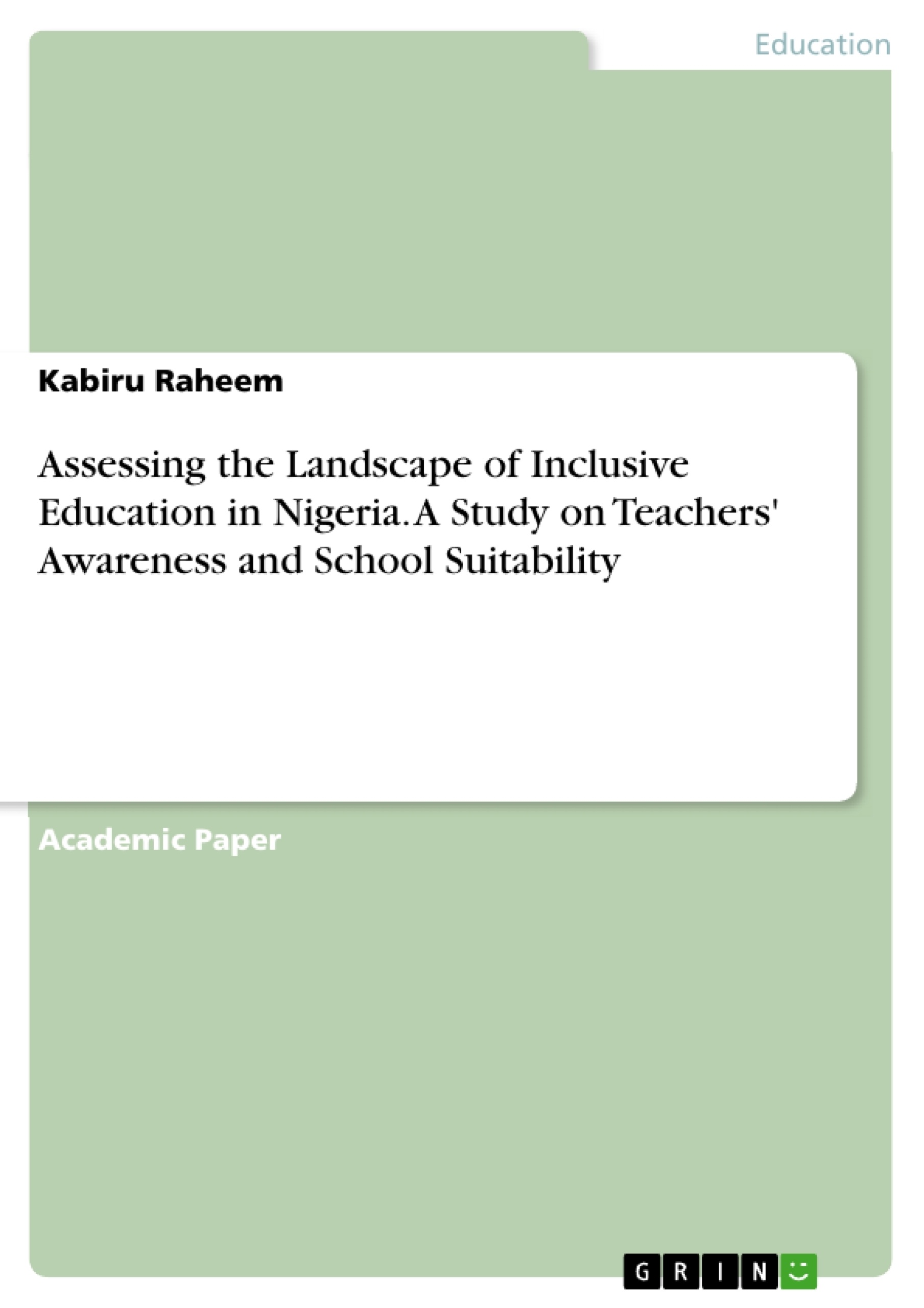Inclusive education was adopted at the Salamanca World Conference on Special Needs Education (1994) as the best educational measure capable of dealing adequately with varying learning needs in the general classroom setting. Most of the participating countries e.g. The United States, South Africa, Canada etc. have gone far in providing inclusive education. However, Nigeria, being one of the countries that recognize Inclusive education, has failed to create conducive atmosphere for the proper take-off of this wonderful educational policy by putting in place all the necessary apparatus needed.
Based on this observation, the study was carried out to assess the level of awareness among regular primary and secondary school teachers as well as suitability status of the schools for implementation of inclusion. The study used ten randomly selected schools, and from these schools, 50 teachers were also randomly selected (five from each school). A questionnaire tagged "Baseline Questionnaire for Teachers on Inclusive Education" was used to elicit information on the teachers' level of awareness, as well as the teachers' view on the suitability of the schools for inclusive education practice. Data analysis was carried out using descriptive statistics.
The result showed that the teachers' awareness level about inclusive education is very low, and the majority of them also view their schools as unsuitable for accommodating students with special needs. Recommendations based on the findings were made to make Inclusive education a reality in the country.
Inhaltsverzeichnis (Table of Contents)
- Introduction
- Problem Statement
- Research Questions
- Literature Review
- Principles of Inclusive Education
- Inclusive Education: What is it?
Zielsetzung und Themenschwerpunkte (Objectives and Key Themes)
This research aims to assess the level of awareness among regular primary and secondary school teachers in Gwagwalada Area Council, Abuja, regarding inclusive education. The study also investigates the suitability of these schools for implementing inclusive practices.
- Awareness of Inclusive Education among Teachers
- Suitability of Schools for Inclusive Education
- Implementation Challenges of Inclusive Education in Nigeria
- Principles and Concepts of Inclusive Education
- The Role of Teachers in Inclusive Education
Zusammenfassung der Kapitel (Chapter Summaries)
The introduction provides background information on the concept of inclusive education and its adoption in Nigeria. It highlights the need for the study and the challenges faced in implementing inclusive education in the country.
The problem statement outlines the lack of implementation of inclusive education in Nigeria despite the country's commitment to the Salamanca Declaration. It emphasizes the need to assess the level of awareness among teachers and the suitability of schools for inclusive practices.
The chapter on literature review delves into the principles of inclusive education, defining it as an approach that aims to accommodate all children regardless of their differences. It discusses various aspects of inclusive education, including its definition, goals, and essential elements.
Schlüsselwörter (Keywords)
The main keywords and focus topics of this research include inclusive education, students with special needs, teachers' awareness, regular schools, implementation challenges, and the Salamanca Declaration. These terms represent the core concepts explored in the study, highlighting the crucial role of teacher awareness and school suitability in the successful implementation of inclusive education in Nigeria.
- Quote paper
- Kabiru Raheem (Author), 2023, Assessing the Landscape of Inclusive Education in Nigeria. A Study on Teachers' Awareness and School Suitability, Munich, GRIN Verlag, https://www.grin.com/document/1437153



